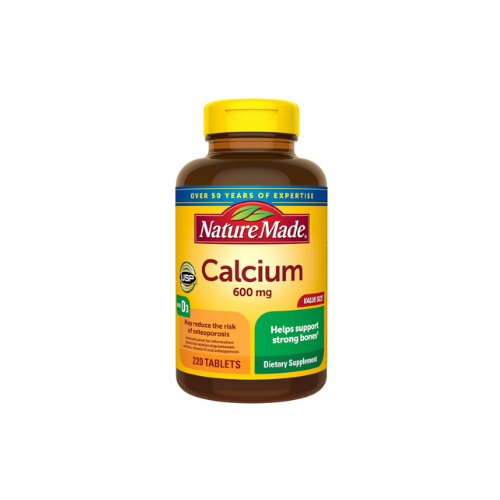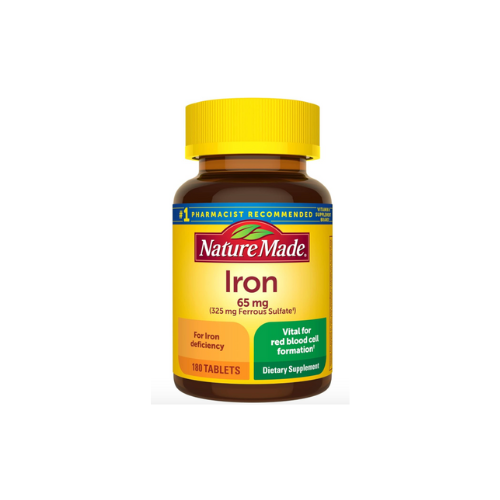Dry Mouth on Carnivore Diet
Causes and Remedies
Dry mouth, also known as xerostomia, is a common experience for individuals who follow a carnivore diet. This diet, which exclusively consists of animal products and eliminates carbohydrates, often leads to various physiological changes. One such change can be a reduction in saliva production, resulting in a feeling of dryness in the mouth. Saliva is essential for oral health and digestion, hence the importance of addressing this condition.
The carnivore diet induces significant changes in the body's metabolism, including the way water and electrolytes are processed. Since the diet is low in carbohydrates, the body retains less water, which can contribute to dry mouth. Additionally, alterations in insulin levels, as a response to the absence of carbohydrates, can further complicate the body's hydration status, exacerbating the sensation of dryness in the mouth.
It is crucial for individuals on the carnivore diet to be aware of dry mouth as a potential side effect. Understanding the causes can lead to better management strategies and an overall more comfortable experience with this way of eating. Adequate hydration, electrolyte supplementation, and attention to oral hygiene can play significant roles in mitigating the effects of dry mouth on a carnivore diet.
Understanding Dry Mouth on a Carnivore Diet
Dry mouth, also known as xerostomia, is a condition individuals may experience when adapting to a carnivore diet. This section discusses the potential causes, the importance of saliva, and the relationship between the diet and hydration.
What Causes Dry Mouth?
Dry mouth occurs when the salivary glands in the mouth do not produce enough saliva to keep the mouth wet. On a carnivore diet, dry mouth can be attributed to several factors:
Transition to ketosis: When a person switches to a carnivore diet, their body shifts from using carbohydrates to fats for energy, potentially causing a reduction in saliva production.
Increased fluid needs: A diet high in protein may increase the body's need for fluids, leading to dehydration if these needs are not met.
The Role of Saliva Production
Saliva plays a vital role in maintaining oral health by:
Lubricating the mouth: It helps in swallowing and speaking.
Cleaning the mouth: Saliva washes away food particles and neutralizes acids produced by bacteria.
Digestion: It contains enzymes that begin the digestion process.
Insufficient saliva production can lead to discomfort and affect these critical functions.
Carnivore Diet and Hydration
Hydration is essential when following a carnivore diet because:
Meat consumption and water loss: Protein metabolism produces more waste that requires water to flush out, increasing the body's demand for fluids.
Risk of dehydration: Without adequate fluid intake, individuals may become dehydrated, exacerbating dry mouth symptoms.
It is important for individuals on a carnivore diet to monitor their hydration levels and consume enough fluids throughout the day.
Nutritional Components of the Carnivore Diet
The carnivore diet focuses on consuming animal products exclusively, emphasizing high intake of proteins and fats while eliminating carbohydrates. This dietary approach can significantly alter the balance of nutrients and has distinct implications for a person's health.
Protein and Fat Intake
The carnivore diet is rich in protein and fat, as it includes a variety of meats, fish, eggs, and certain dairy products. Protein is essential for muscle repair, immune function, and overall cellular health. On this diet, individuals consume proteins such as:
Beef
Pork
Chicken
Fish
Fat serves not only as a primary energy source but also aids in the absorption of fat-soluble vitamins. The types of fats commonly ingested in a carnivore diet include:
Saturated fats from red meat
Monounsaturated fats from eggs
Omega-3 fatty acids from fatty fish
Absence of Carbohydrates
The hallmark of the carnivore diet is the complete absence of carbohydrates. It excludes foods such as:
Fruits
Vegetables
Grains
Legumes
Sugars
As a result, the body shifts to using fat and protein for energy. The exclusion of dietary carbohydrates means that the body may experience an adjustment period where it has to utilize alternative energy pathways, such as ketosis.
Vitamins and Minerals
Within the constraints of the carnivore diet, obtaining certain vitamins and minerals can be challenging. However, some necessary nutrients are abundant in animal products, such as:
Vitamin D and calcium, important for bone health, are found in dairy products and fish.
Essential nutrients like iron, zinc, and B vitamins are plentiful in red meat.
Consumers need to be attentive to the potential for nutrient deficiencies and ensure that they include a variety of animal products to obtain a broad spectrum of nutrients. For example, organ meats are an excellent source of vitamins and minerals that might be otherwise lacking in muscle meats alone.
When it comes to vitamin D, calcium, iron, zinc, and vitamin B online shopping is the way to go!
Impact of Carnivore Diet on Oral Health
Adopting a carnivore diet can result in changes to oral health, particularly in relation to dental conditions and the balance of oral bacteria. One must consider both its potential to improve dental health and the need for vigilant oral hygiene.
Association with Dental Conditions
Tooth Decay: The carnivore diet, by eliminating sugar and carbohydrates — key culprits in tooth decay — may contribute to lower rates of dental cavities. However, the consumption of meat alone does not guarantee protection against tooth decay, as overall dental care remains crucial.
Gum Disease: While the diet could potentially reduce the incidence of gum disease by limiting sugar intake, the lack of dietary fiber could pose risks to gum health. Individuals must ensure they maintain optimal oral hygiene to mitigate these risks.
Effect on Oral Bacteria and pH Levels
Oral Bacteria: Carnivore diets can affect the composition of oral bacteria by significantly reducing the substrates necessary for harmful bacteria to thrive. This can lead to a beneficial microbiome that supports overall oral health.
pH Levels: High-protein diets have been shown to alter the pH level in the mouth, which could impact the growth of oral bacteria. Continuous monitoring and regular dental check-ups are essential to maintain a healthy oral environment.
The carnivore diet's heavy reliance on animal products and exclusion of carbohydrates are central to its impact on oral health. Ensuring comprehensive oral hygiene practices can aid in preventing tooth decay and gum disease, helping to foster a healthy oral ecosystem.
Electrolytes and Fluid Balance
Electrolytes play a pivotal role in maintaining fluid balance, essential for individuals on a carnivore diet who may experience dry mouth due to shifts in electrolyte levels.
Importance of Electrolytes
Electrolytes such as sodium, potassium, and magnesium are crucial in regulating the body's fluid balance. These charged particles help conduct electrical impulses for muscle contractions and support various cellular functions. They are also important for proper nerve function.
Sodium aids in maintaining fluid equilibrium within and outside cells and is critical for neural communication.
Potassium is necessary for regular heart and muscle function.
Magnesium supports muscle and nerve activity and is involved in over 300 biochemical reactions in the body.
Maintaining a balance of these electrolytes is essential for preventing symptoms of imbalance, such as dry mouth, muscle cramps, and irregular heartbeat.
Managing Electrolyte Imbalance on Carnivore Diet
On a carnivore diet, one must be attentive to their electrolyte intake since the diet can lead to a natural diuretic effect causing increased excretion of electrolytes. To avoid imbalances, individuals may need to consider electrolyte supplements or make dietary adjustments:
Inclusion of salt: Regularly adding small amounts of sea salt to meals can help maintain sodium levels, which is vital for water retention and electrolyte balance.
Electrolyte supplements: If necessary, one can opt for a balanced electrolyte supplement that includes sodium, potassium, and magnesium.
Monitoring one's intake of these key electrolytes is imperative for those on the carnivore diet to prevent dry mouth and other related symptoms.
Trust me, the easiest way to buy electrolyte supplement is through online retailers!
Digestive and Metabolic Responses
Upon adopting a carnivore diet, the body undergoes significant digestive and metabolic changes as it adjusts to increased meat consumption and transitions into a state of ketosis.
Digestive System Adjustment to Meat Consumption
The digestive system may require time to adapt to the high levels of animal protein and fats found in meats. Enzymatic activity in the pancreas increases to aid the breakdown of these macronutrients. The gallbladder also plays a critical role, releasing more bile to emulsify the fats for more efficient digestion. This adaptation period can sometimes lead to a temporary sensation of dry mouth as the body recalibrates its saliva production and enzyme allocation.
Increased demand for digestive enzymes.
More active bile secretion from the gallbladder.
Metabolic Changes and Ketosis
Ketosis is a metabolic state where the body uses fat, rather than carbohydrates, as its primary energy source. When one consumes mostly meats and eliminates carbohydrates, the liver begins to produce ketone bodies as an alternative fuel. This shift can cause a variety of responses, including alterations in hydration and saliva production, which may contribute to dry mouth.
Shift from carbohydrate metabolism to fat metabolism.
Production of ketone bodies by the liver.
Health Benefits and Risks
The Carnivore Diet is often approached with significant scrutiny due to its restrictive nature. Dissecting this diet's impact on health, the following discussion delves into the advantages it may offer and the potential risks that come with it.
Potential Advantages of Carnivore Diet
Energy and Inflammation:
Energy: Individuals may experience an increase in energy levels. This is attributed to the stable blood sugar levels resulting from a diet high in proteins and fats in the absence of carbohydrates.
Inflammation: The diet's exclusion of plant-based foods, which might contain allergens or irritants for some people, could potentially reduce inflammation.
Possible Side Effects and Nutrient Deficiencies
Hormonal Fluctuations and Nutrient Deficiencies:
Hormones: A diet high in fatty meats could influence hormones, potentially impacting the body's hormonal balance.
Nutrient Deficiencies: Exclusive consumption of animal products might lead to deficiencies in fiber, vitamins C and E, and certain phytonutrients found in plants.
Dry Mouth and Other Side Effects:
Dry Mouth: Lack of adequate hydration or reduction in saliva production due to the diet could result in a dry mouth. This symptom might also be connected to the absence of foods that stimulate saliva.
Side Effects: Individuals may be at risk of other side effects such as constipation or nutrient imbalances, considering the restrictive nature of the diet.
Managing Side Effects and Supplementation
When adopting a carnivore diet, individuals may encounter side effects such as constipation or diarrhea. Addressing these gastrointestinal issues and understanding the role of supplementation is crucial for maintaining balance and health.
Dealing with Constipation and Diarrhea
Constipation can manifest due to a lack of fiber in an all-meat diet. To mitigate this, one should ensure adequate hydration, as water is vital for bowel movement regularity. In severe cases, a gentle laxative like magnesium citrate may be used to alleviate symptoms. Conversely, diarrhea could arise from dietary adaptation or excessive fat intake. Maintaining electrolyte balance is key, and one may opt for electrolyte supplements if natural food sources are insufficient.
Dehydration: Increase water intake significantly to help soften stools.
Electrolytes: Consider an electrolyte supplement to maintain balance and prevent cramping.
Supplements to Consider
While on a carnivore diet, certain nutrients potentially lacking from the regimen should be considered for supplementation to avoid deficiencies.
Vitamin C: Although often adequate in fresh meat, some may choose to supplement with vitamin C to ensure sufficient levels, aiming for a dosage that prevents symptoms without causing digestive distress.
Magnesium: In addition to alleviating constipation, magnesium supplements can prevent cramping, particularly magnesium citrate, which combines the benefits of magnesium and citrate, a known constipation alleviator.
Nutrient Supplementation: Reasons and Recommended Forms
Vitamin C
Reason: For overall health
Form Recommended: Moderate dose, as tolerated
Magnesium
Reason: Constipation and cramping
Form Recommended: Magnesium citrate
It's critical for those on a carnivore diet to monitor their body's response to dietary changes and consider these supplementation strategies to manage potential side effects effectively.
Get the best value for your money by purchasing vitamin C and magnesium online!
Comparing Carnivore to Other Diets
When examining the carnivore diet, it’s essential to understand how it stands in contrast to other low-carb diets like keto and paleo, specifically in relation to dry mouth experience, and the absence or presence of plant-based foods and fiber.
Carnivore vs. Keto and Paleo Diets
The carnivore diet is an all-animal-product diet that excludes all plant-based foods, while the ketogenic (keto) diet is high-fat, moderate-protein, and low-carbohydrate, allowing certain plant products. The paleo diet also encourages the consumption of animal products but includes fruits, vegetables, nuts, and seeds while avoiding processed foods.
Both keto and paleo diets allow for some carbohydrate intake through plant-based foods, which can be relevant to maintaining saliva production, thus potentially reducing the risk of dry mouth. The carnivore diet, by virtue of its elimination of all plant foods, may affect saliva production differently due to the absence of dietary carbohydrates.
Dietary Comparison: Carbohydrate Intake, Plant-Based Foods, and Processed Foods
Carnivore Diet
Carbohydrate Intake: Minimal to none
Plant-Based Foods: None
Processed Foods: Avoided
Keto Diet
Carbohydrate Intake: Low to moderate
Plant-Based Foods: Limited selection
Processed Foods: Limited
Paleo Diet
Carbohydrate Intake: Moderate (higher than keto)
Plant-Based Foods: Encouraged
Processed Foods: Avoided
Role of Plant-Based Foods and Fiber
Plant-based foods, including vegetables, fruits, and whole grains, provide dietary fiber that is not found in the carnivore diet. Fiber plays an essential role in the body, including the maintenance of oral health and functioning. It stimulates saliva flow, which is critical for oral hygiene as saliva washes away food particles and reduces the risk of dry mouth.
Therefore, individuals on the carnivore diet may need to consider additional methods to manage saliva production due to the absence of fiber. This is in contrast to those on diets like paleo, where fiber consumption through plant foods is inherent in the dietary pattern.
Lifestyle Factors Influencing Diet Outcomes
Adhering to a carnivore diet may lead to changes in bodily functions, such as saliva production, that are often unexpected, including the potential for dry mouth. Within this context, an individual's lifestyle, particularly their level of physical activity and methods of stress management, can significantly alter the efficacy of the diet and its outcomes on the body.
Physical Activity and Diet Efficacy
Exercise plays a pivotal role in maintaining optimal health, and for individuals on a carnivore diet, it can influence the diet's effectiveness. Regular physical activity, including strength training and aerobic exercise, aids in regulating bodily functions and can improve saliva flow, counteracting dry mouth symptoms.
Exercise promotes increased saliva production, which helps to maintain oral moisture and health.
Incorporating activities like weightlifting or high-intensity interval training (HIIT) can enhance metabolic processes, supporting the nutrients' assimilation from a meat-rich diet.
Stress Management and Hormonal Balance
Effective stress management is crucial for those on a carnivore diet to avoid complications like dry mouth. Stress-induced cortisol release can disrupt the balance of bodily functions, leading to reduced saliva production. Practicing yoga and mindfulness can lower stress levels and help in maintaining hormonal balance.
Yoga: Implementing yoga into one's routine can significantly reduce cortisol levels, mitigating stress’s physical effects, including the onset of dry mouth.
Mindfulness and Relaxation Techniques: Regular practice can improve one's response to stress and potentially decrease the instances of dry mouth associated with a carnivore diet.











